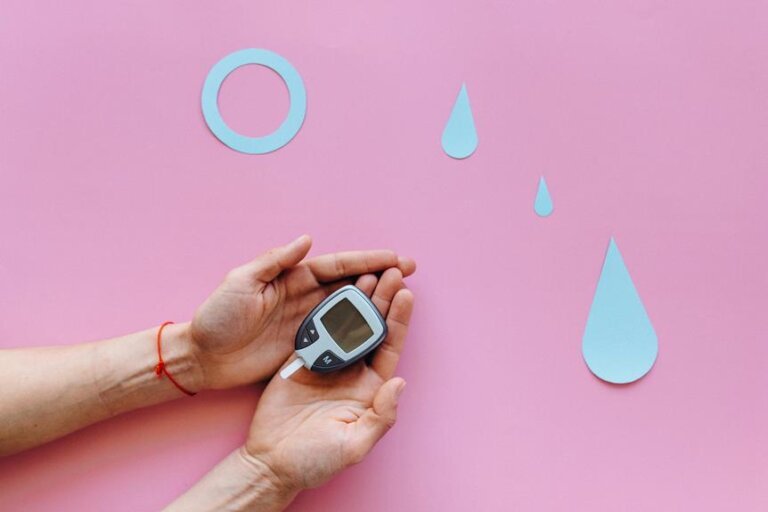The Link Between Prediabetes and Heart Health: What You Need to Know
If you think prediabetes is just a minor concern, think again. The connection between prediabetes and heart health is more significant than you might realize.
Understanding how prediabetes impacts your heart could be crucial in safeguarding your overall well-being.
Learn about the surprising ways prediabetes can influence your heart health and why staying informed is essential for your long-term health goals.
Understanding Prediabetes
Understanding Prediabetes involves recognizing the early warning signs of high blood sugar levels before they escalate to full-blown diabetes. It's essential to be aware of subtle symptoms like increased thirst, frequent urination, fatigue, and blurred vision. If you notice these signs, it's crucial to consult a healthcare provider for proper testing and diagnosis.
Prediabetes often shows no obvious symptoms, making regular check-ups even more important. Factors like family history, obesity, and a sedentary lifestyle can increase your risk of developing prediabetes. By understanding these risk factors, you can take proactive steps to prevent or manage the condition.
Simple lifestyle changes, such as adopting a healthy diet, increasing physical activity, and maintaining a healthy weight, can significantly lower your risk of prediabetes progressing to type 2 diabetes. Remember, early detection and intervention are key in managing prediabetes and preventing further health complications.
Impact on Heart Health
Detecting prediabetes early can significantly impact your heart health. When left unmanaged, prediabetes can lead to an increased risk of heart disease and other cardiovascular complications. High blood sugar levels in prediabetes can damage the blood vessels and the heart over time, contributing to the development of atherosclerosis (hardening of the arteries) and increasing the likelihood of heart attacks and strokes.
Moreover, prediabetes is often associated with other risk factors for heart disease, such as high blood pressure and abnormal cholesterol levels. These factors, when combined with prediabetes, create a perfect storm for cardiovascular issues.
Risk of Cardiovascular Disease
Left unmanaged, prediabetes significantly increases your risk of cardiovascular disease, including heart attacks and strokes, due to the damage high blood sugar levels can cause to your blood vessels and heart over time. When your blood sugar levels are consistently elevated, it can lead to a buildup of fatty deposits in your blood vessels, narrowing them and restricting blood flow. This process, known as atherosclerosis, can increase your chances of developing conditions such as coronary artery disease, which can result in heart attacks.
Moreover, the impact of prediabetes on your heart health extends beyond just the blood vessels. High blood sugar levels can also damage the nerves that control your heart and blood vessels, leading to issues with your heart's rhythm and function. These changes can make you more vulnerable to experiencing cardiovascular events like heart failure or irregular heartbeats, increasing the overall risk to your heart health. It's essential to manage your prediabetes effectively to reduce these risks and safeguard your cardiovascular well-being.
Connection to Type 2 Diabetes
If you have prediabetes, your risk of developing type 2 diabetes is significantly higher. Monitoring your blood sugar levels is crucial in understanding how your body processes glucose.
Insulin resistance plays a key role in the link between prediabetes and the onset of type 2 diabetes.
Type 2 Diabetes Risk
Understanding your risk of developing type 2 diabetes is crucial in managing your overall health. Factors such as being overweight, having a sedentary lifestyle, and a family history of diabetes can increase your risk.
Prediabetes is a significant warning sign that your body is struggling to regulate blood sugar levels, putting you at a higher risk of developing type 2 diabetes.
By recognizing and addressing these risk factors early on, you can take proactive steps to prevent or delay the onset of type 2 diabetes. Making lifestyle changes such as increasing physical activity, improving your diet, and maintaining a healthy weight are essential in reducing your risk.
Regular screenings and check-ups with your healthcare provider can also help monitor your risk factors and overall health.
Blood Sugar Levels
Monitoring your blood sugar levels is crucial for understanding your risk of developing type 2 diabetes. High blood sugar levels, often seen in prediabetes, indicate that your body is having trouble regulating glucose properly.
Consistently elevated blood sugar levels can lead to insulin resistance, a condition where your cells don't respond effectively to insulin, increasing your risk of type 2 diabetes. When blood sugar levels remain high over time, it can damage your blood vessels and nerves, putting you at a higher risk for heart disease, stroke, and other complications.
Regular monitoring of your blood sugar levels through tests like fasting blood sugar or A1C can help you and your healthcare provider assess your risk and take preventive measures to manage your health effectively.
Insulin Resistance Connection
High blood sugar levels, often associated with prediabetes, can lead to insulin resistance, a condition where your cells become less responsive to insulin, increasing the risk of developing type 2 diabetes. Insulin is a hormone that helps regulate blood sugar levels by allowing cells to take in glucose for energy. When your cells become resistant to insulin, glucose builds up in the bloodstream, leading to high blood sugar levels.
Over time, this continuous elevation of blood sugar can damage blood vessels and nerves, increasing the risk of heart disease and other complications. Therefore, managing insulin resistance through lifestyle changes such as a healthy diet, regular exercise, and weight management is crucial in preventing the progression from prediabetes to type 2 diabetes.
Managing Blood Sugar Levels
To effectively manage your blood sugar levels, it's crucial to maintain a balanced diet and stay physically active. Your diet should consist of whole grains, lean proteins, fruits, vegetables, and healthy fats. Avoid sugary drinks and excessive sweets, as these can cause spikes in blood sugar levels. Instead, opt for foods that are high in fiber and protein to help regulate your blood sugar throughout the day.
Incorporating physical activity into your routine is also essential for managing blood sugar levels. Aim for at least 150 minutes of moderate exercise per week, such as brisk walking, cycling, or swimming. Exercise helps your body use insulin more effectively, which can lower blood sugar levels over time. Additionally, regular physical activity can improve your overall cardiovascular health, reducing the risk of heart disease associated with prediabetes.
Lifestyle Changes for Heart Protection
To safeguard your heart health amidst prediabetes, adopting key lifestyle changes is vital. Making simple adjustments can significantly reduce your risk of heart disease.
Start by incorporating regular exercise into your routine. Aim for at least 150 minutes of moderate-intensity aerobic activity per week, such as brisk walking or cycling. Additionally, prioritize a balanced diet rich in fruits, vegetables, whole grains, and lean proteins. Limit your intake of saturated fats, sugars, and processed foods to keep your heart healthy.
Moreover, maintain a healthy weight to lessen the strain on your heart. Losing just 5-10% of your body weight can lead to improvements in heart health and blood sugar levels. Avoid smoking and limit alcohol consumption to further protect your heart.
These lifestyle changes, when combined, can have a powerful impact on reducing your risk of heart disease and managing prediabetes effectively. Prioritize your heart health by implementing these changes today.
Importance of Regular Monitoring
To maintain optimal heart health, you should prioritize monitoring your blood sugar levels regularly.
By keeping track of your levels, you can better understand how they impact your heart health.
Regular monitoring empowers you to make informed decisions to protect your heart.
Monitoring Blood Sugar Levels
Regularly monitoring your blood sugar levels is crucial for managing prediabetes and maintaining heart health. By keeping a close eye on your blood sugar levels, you can better understand how your body responds to different foods, activities, and medications.
This information allows you to make informed decisions about your diet and lifestyle to keep your blood sugar within a healthy range. Consistent monitoring helps identify any fluctuations or patterns, enabling you to take timely action to prevent them from escalating into more serious issues.
With regular checks, you can work closely with your healthcare provider to adjust your treatment plan as needed, reducing the risk of developing heart complications associated with prediabetes.
Impact on Heart Health
Monitoring your blood sugar levels consistently is vital for understanding the impact of prediabetes on your heart health. By keeping track of your levels, you can identify patterns and trends that may indicate an increased risk of heart issues.
Elevated blood sugar levels can damage blood vessels over time, leading to a higher risk of heart disease and stroke. Regular monitoring allows you to take proactive steps to manage your prediabetes and lower the risk of heart complications.
It empowers you to make informed decisions about your diet, exercise, and overall health to protect your heart. Remember, knowledge is power when it comes to your health, so stay vigilant and prioritize monitoring your blood sugar levels to safeguard your heart.
Frequently Asked Questions
Can Prediabetes Be Reversed Completely With Lifestyle Changes and Medication?
You can reverse prediabetes with lifestyle changes and medication. By adopting healthier habits like regular exercise and a balanced diet, along with prescribed medications, you can work towards completely reversing prediabetes.
Are There Any Specific Dietary Recommendations to Reduce the Risk of Cardiovascular Disease in Individuals With Prediabetes?
You've got to revolutionize your plate! Load up on vibrant veggies, hearty whole grains, lean proteins, and good fats. Wave goodbye to processed junk. Your heart will thank you with each delicious, wholesome bite.
How Often Should Blood Sugar Levels Be Monitored in Individuals With Prediabetes to Prevent Progression to Type 2 Diabetes?
Monitor blood sugar levels regularly to prevent type 2 diabetes if you have prediabetes. Check with your healthcare provider for guidance on how often to test. Consistent monitoring is crucial for early detection and intervention.
Are There Any Specific Exercises or Physical Activities That Are More Beneficial for Heart Health in Individuals With Prediabetes?
To boost heart health in prediabetes, focus on aerobic exercises like brisk walking, swimming, or cycling. Strive for at least 150 minutes per week. Resistance training with weights or bands can also enhance heart function. Stay active!
What Are Some Common Misconceptions About Prediabetes and Its Impact on Heart Health That People Should Be Aware Of?
Be cautious of common misconceptions about prediabetes and heart health. Take note that even though prediabetes may seem harmless, it can significantly impact your heart health. Stay informed and proactive about managing both conditions.
Conclusion
So, now you know the link between prediabetes and heart health. Remember, taking control of your blood sugar levels is like planting seeds for a healthy heart garden.
Keep an eye on your numbers, make small lifestyle changes, and watch your heart bloom with vitality and strength. Your heart will thank you for it in the long run.
Stay proactive and keep your heart in good hands.




